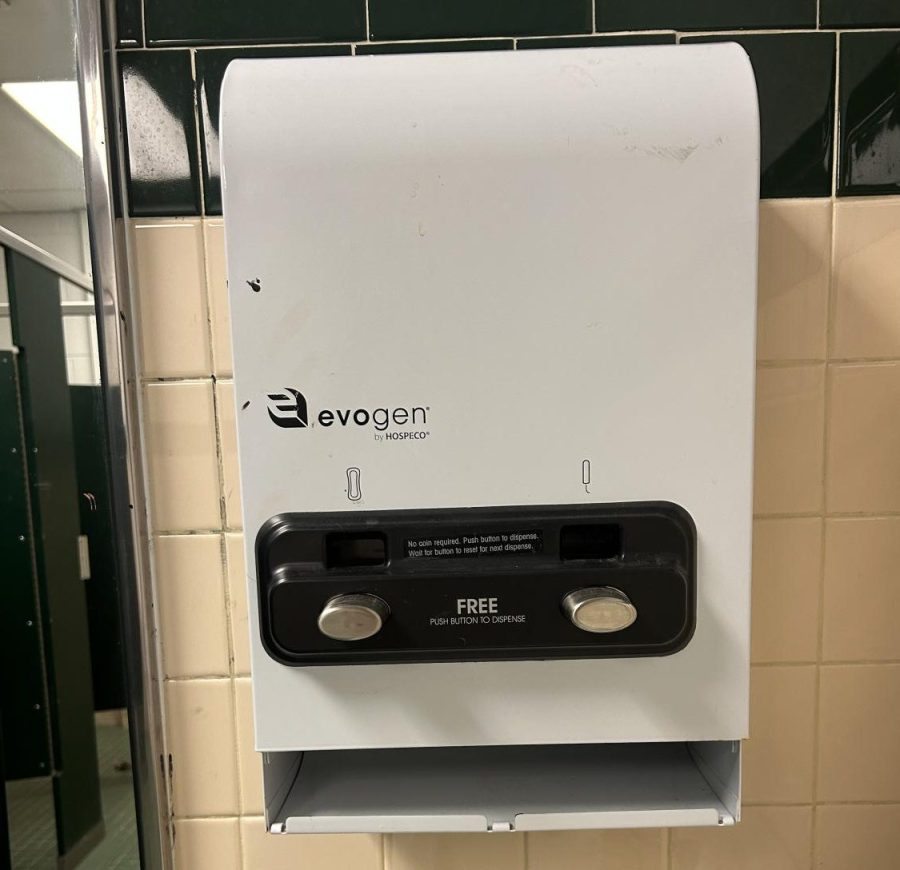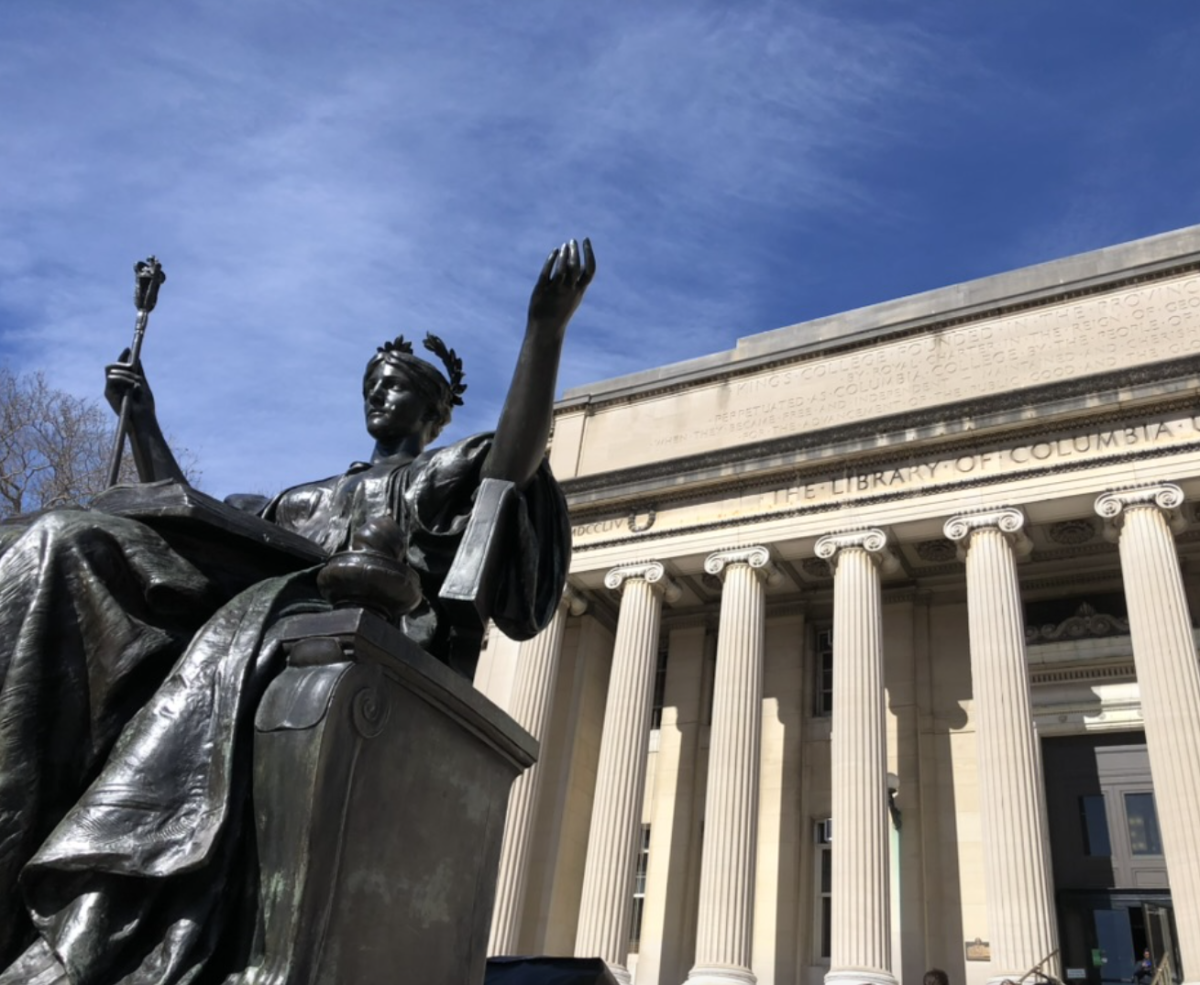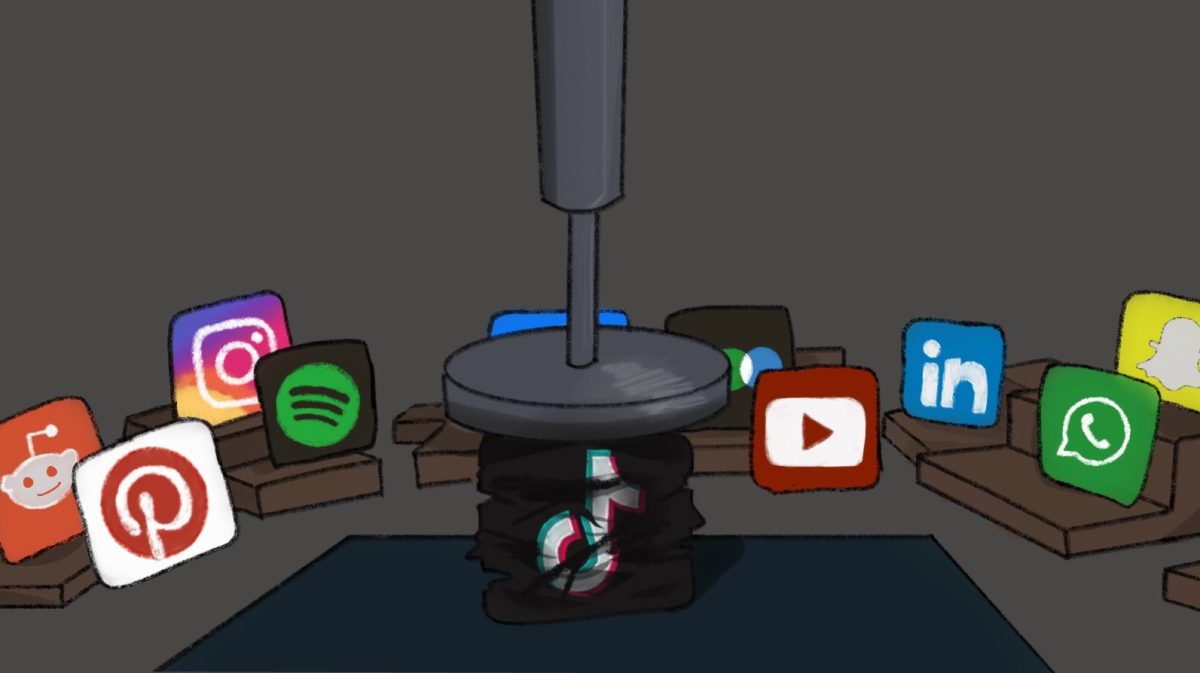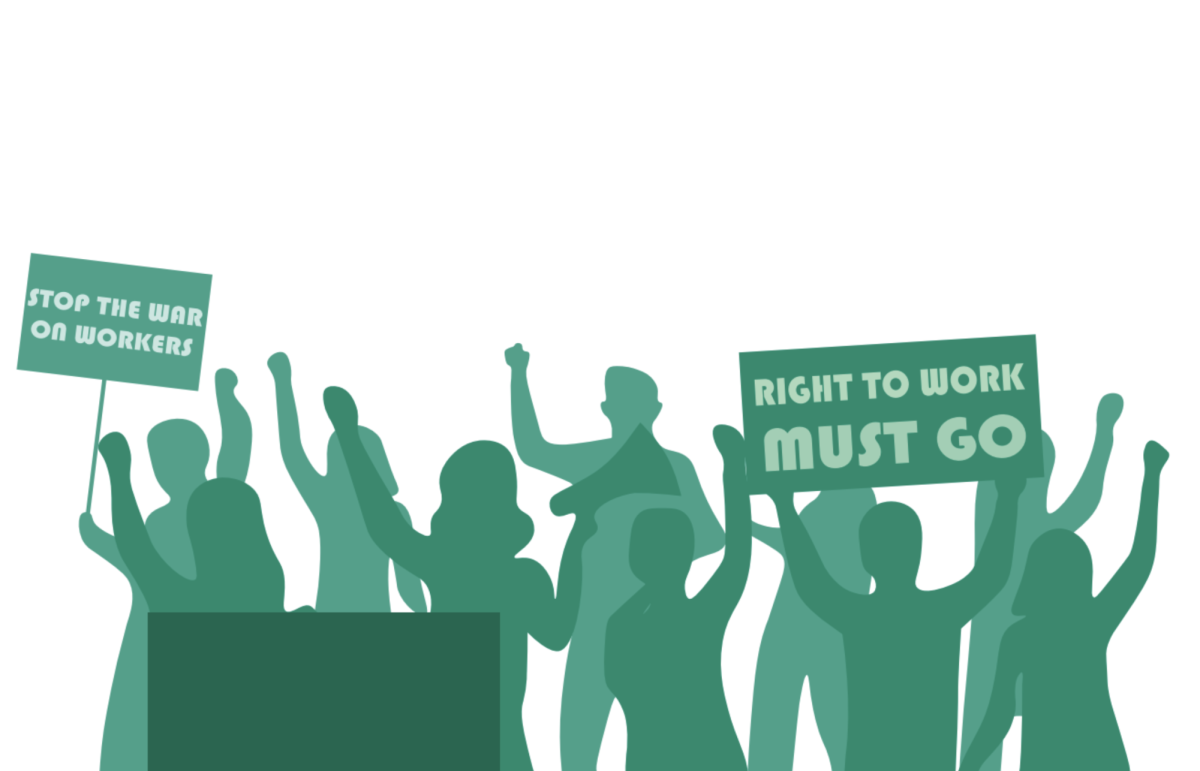Having your period at school is a frustrating process, as there is a constant need to carry extra sanitary products in case of an emergency. Many students at McLean have gotten their period when they least expect it or when they are running out of pads or tampons.
These are scenarios that all people with periods have experienced before. Having to ask a random stranger in the bathroom for an extra sanitary product is an uncomfortable experience.
“Asking around the bathroom is embarrassing and there’s definitely a stigma around periods [in general],” senior Rebecca Weil said. “[These products] not being accessible is a gateway into embarrassment.”
Unfortunately for McLean students, there is little support from the administration regarding menstruation products. Students should feel that they are supported by their school, but the absence of hygiene products in bathrooms does not allow for this.
While there are hygiene dispensaries, they are consistently empty, which sends a negative message from administration. According to the Virginia House Bill 405 and Senate Bill 232, elementary, middle and high schools are required to make tampons and pads available and accessible at no cost.
In the modular building, the bathrooms do not have proper sanitary product disposal, only a single trash can in the corner of the bathroom. There must be more emphasis on the need to include these products, in order to ensure that students feel comfortable and supported by administration.
“[People] of different cultures have different levels of comfort with asking for a product,” Principal Ellen Reilly said. “Just to be able to go and have to ask the nurse or come down to ask somebody for it just really puts them at a disadvantage.”
By not stocking the bathrooms, the conversation on menstruation will be further frowned upon, and students feel as if they are not heard by administration. In a school as open and diverse as McLean, it is insensible that there remains little discussion regarding menstrual product availability.
“I think that the lack of period products in this school is indicative of a larger issue,” Weil said. “There’s a neglect of menstrual health and women’s reproductive rights.”
Last school year, products had been stocked in all dispensaries across the school. However, students lost access to these privileges in the new school year.
“[The products] were abused immensely,” Reilly said. “Last year, with Raising Student Voices, we tried thinking of ways to keep students from doing it, and it didn’t work. The products were stuck on walls, flushed down the toilet and made into patterns.”
Despite the added cost of keeping the bathroom stocked year round, students would be eager to donate to a cause that directly impacts them. Dr. Reilly plans to stock the blue and yellow bathrooms this school year, but the bathrooms should have been stocked from the start of this year to best support staff and students.
“Do I think we’re doing the best we can? Probably not,” Reilly said. “If you’re going to abuse it, we’re not going to give more work to the custodians. It really puts them at a disadvantage, and it’s not fair for them.”
It is integral that sanitary products are accessible for all students, but it is also up to the student body to treat their peers and custodial staff with respect.
“We never really came up with a solution on how to solve the problem of the abuse of the few and the impact of the many,” Reilly said. “I want people to know that the people you’re impacting are your fellow students and custodians.”
Menstrual health must be an open conversation between McLean faculty and students, regardless of age, gender and social status.









